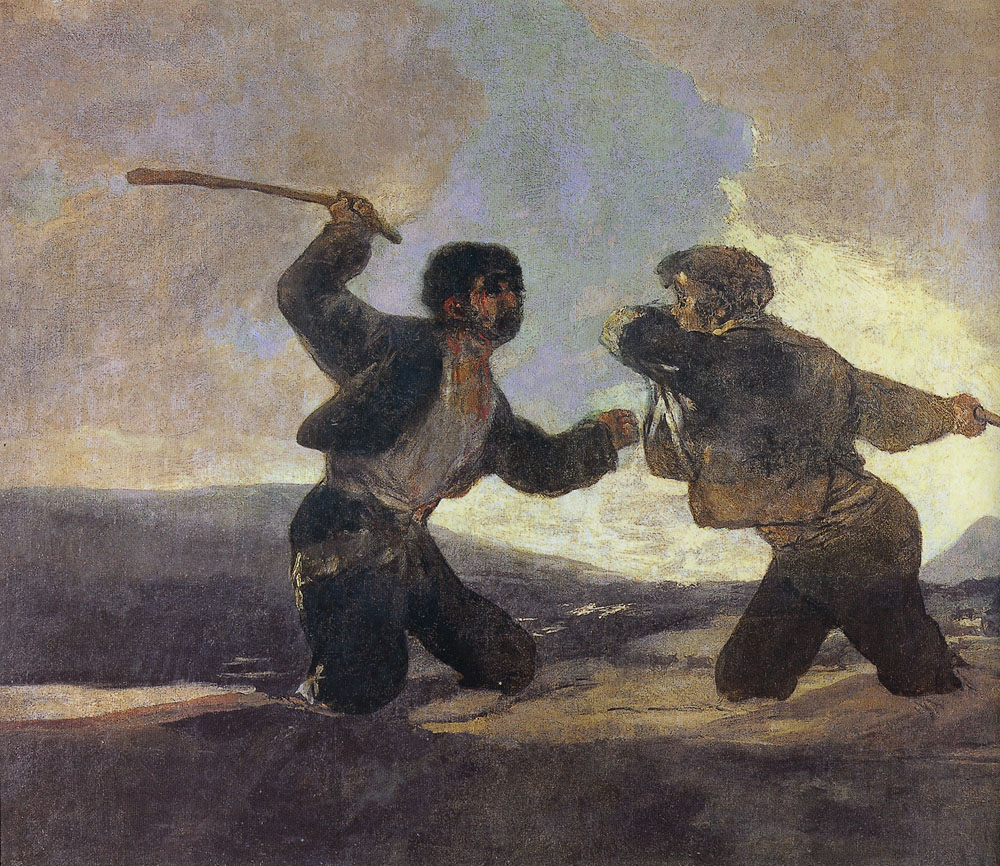
Monday
A conservative reader the other day accused me of relentlessly using this blog as “an anti-Trump cudgel,” which got me thinking about whether I was indeed guilty of losing perspective. Was I in the grip of what Balzac calls an “idée fixe”—which is to say, an obsession that defines a life?
According to Encyclopedia Britannica, the phrase first appeared in Balzac’s Gobseck, his brilliant novella about a man whose every action and thought are defined by avarice, and other Balzac characters followed suit. One finds plenty of other fixated characters in literature, with Dickens jumping to mind.
Small digression: Obélix’s little dog in the Astérix comic series is named “Idéfix”—as good a name for a dog as any I can think of.
So am I guilty? The reader has a point if we expand Trump to include rightwing extremism in general, since I’ve written an inordinate number of posts about our partisan politics over the past nine and a half years. I’ve just put together a collection of my essays on Trump and Trumpism and was amazed at how many I had to cut to make the book a manageable size.
In my defense, I’ve written many non-political essays as well. When one writes six essays a week about whatever is on one’s mind—along with the literature that casts light upon it—one reveals several obsessions. But my interest in politics is certainly up there.
In one way, this shouldn’t comes as a surprise since many of my intellectual efforts arose in response to a rightwing cudgeling no less fixated than my own. During the George H. W. Bush administration, conservatives used literature to cudgel multiculturalism, gesturing towards Shakespeare and shouting, “Austen, not Alice Walker” in order to dismiss a growing interest in literature by previously marginalized groups. The more literate of them cited Matthew Arnold’s “Culture and Anarchy” or T. S. Eliot’s “Tradition and Individual Talent.”
Particularly distressing to me was how some on the left accepted the framing, in a sense arguing, “Alice Walker, not Austen.” A few voices inveighed against “dead white men,” as though every author I taught in my early British Literature survey classes was like George Eliot’s Casaubon, squelching the prospects of future Dorotheas and Ladislaws with the dead hand of the past.
Whether from a rightwing or a leftwing perspective, such a framing made older writers monochromatic, seeming to represent the same thing. The framing turned authors who were as open to difference as anyone has ever been—I’m thinking especially of Chaucer and Shakespeare—into exemplars of a hoary ideology. Works that thrilled me to the core were either frozen by conservatives into lifeless monuments or demonized by leftists as the products of patriarchal tyrants.
I therefore set out to liberate canonical authors, showing how explosive their works were and can continue to be. If I have reduced them in my own framing, well, that is to be expected. As I said, we each of us have our fixed ideas. More important is the dialogue that emanates from expressed views.
As I think about it, I rely to a certain extent upon knowing that there are conservative readers out there who serve as a counterweight. When I applaud Shakespeare for, say, shaking up traditional gender definitions in Twelfth Night, in the back of my mind I am glad that there are others arguing that Shakespeare stands as a bulwark against anarchy. I’m for liberalizing culture and want individual rights to be respected, but I recognize the dangers of change occurring too quickly. I depend on other perspectives to maintain balance.
As we brandish our cudgels, we must maintain respect for our adversaries. The narrator in Gobseck does not have the miser’s particular obsession, but he learns a tremendous amount from him.
Further thought: The early 1990s haven’t entirely left us when it comes to the culture wars. Iowa’s Rep. Steve King (R) just equated “Western Civilization” with white nationalism and white supremacy, using the first to uplift the second two. “White nationalist, white supremacist, Western civilization — how did that language become offensive?” he said in a New York Times interview.